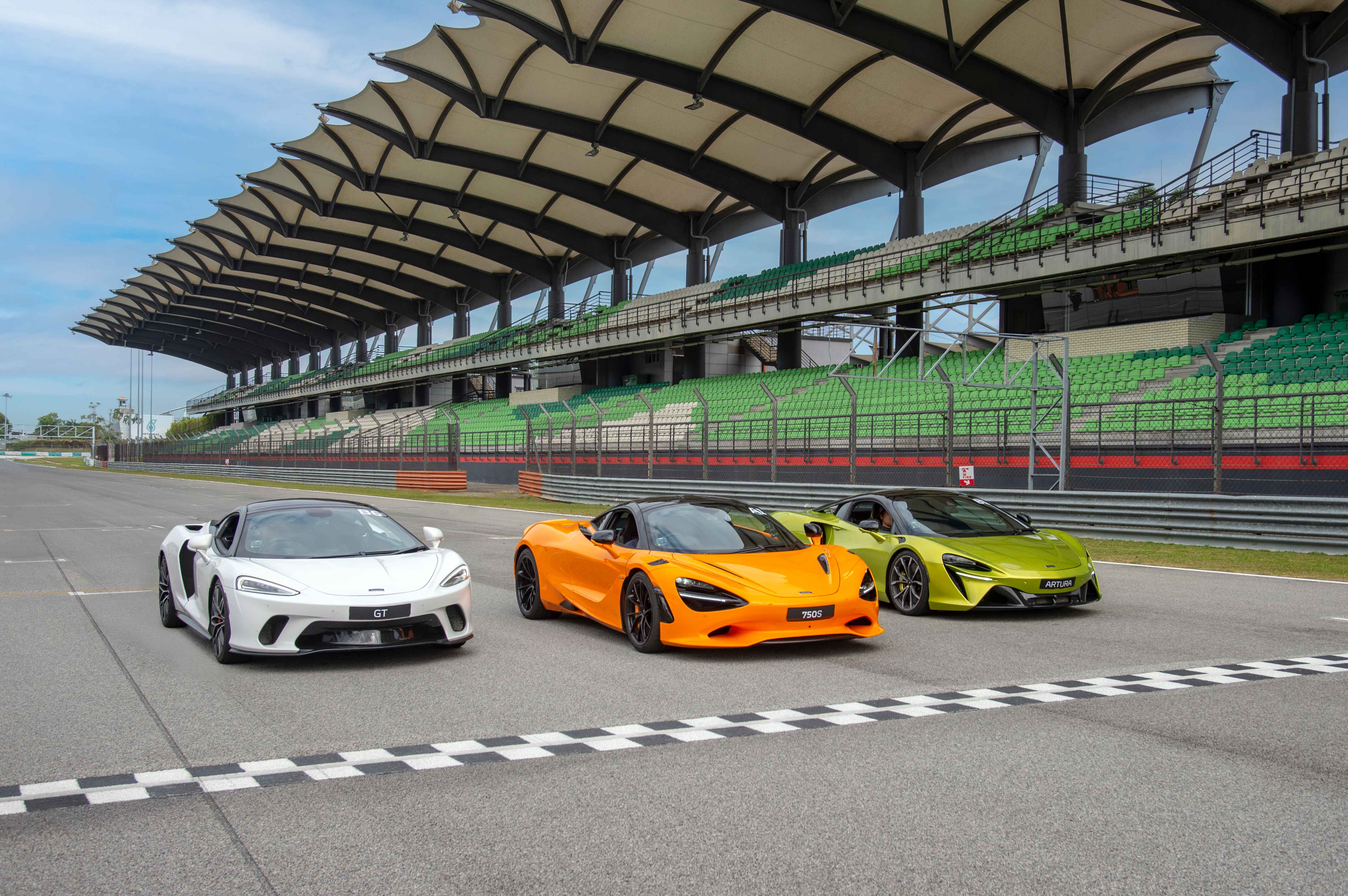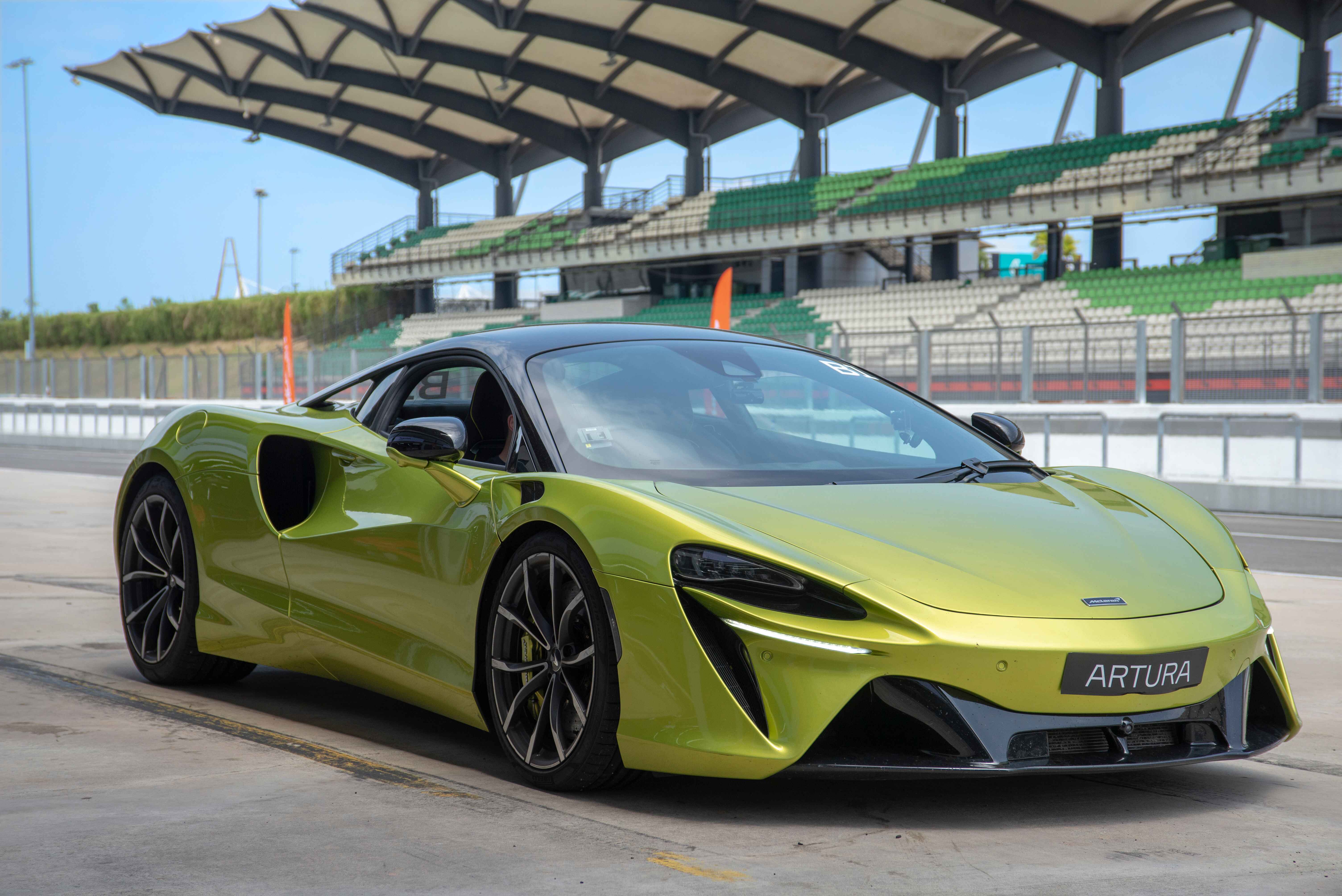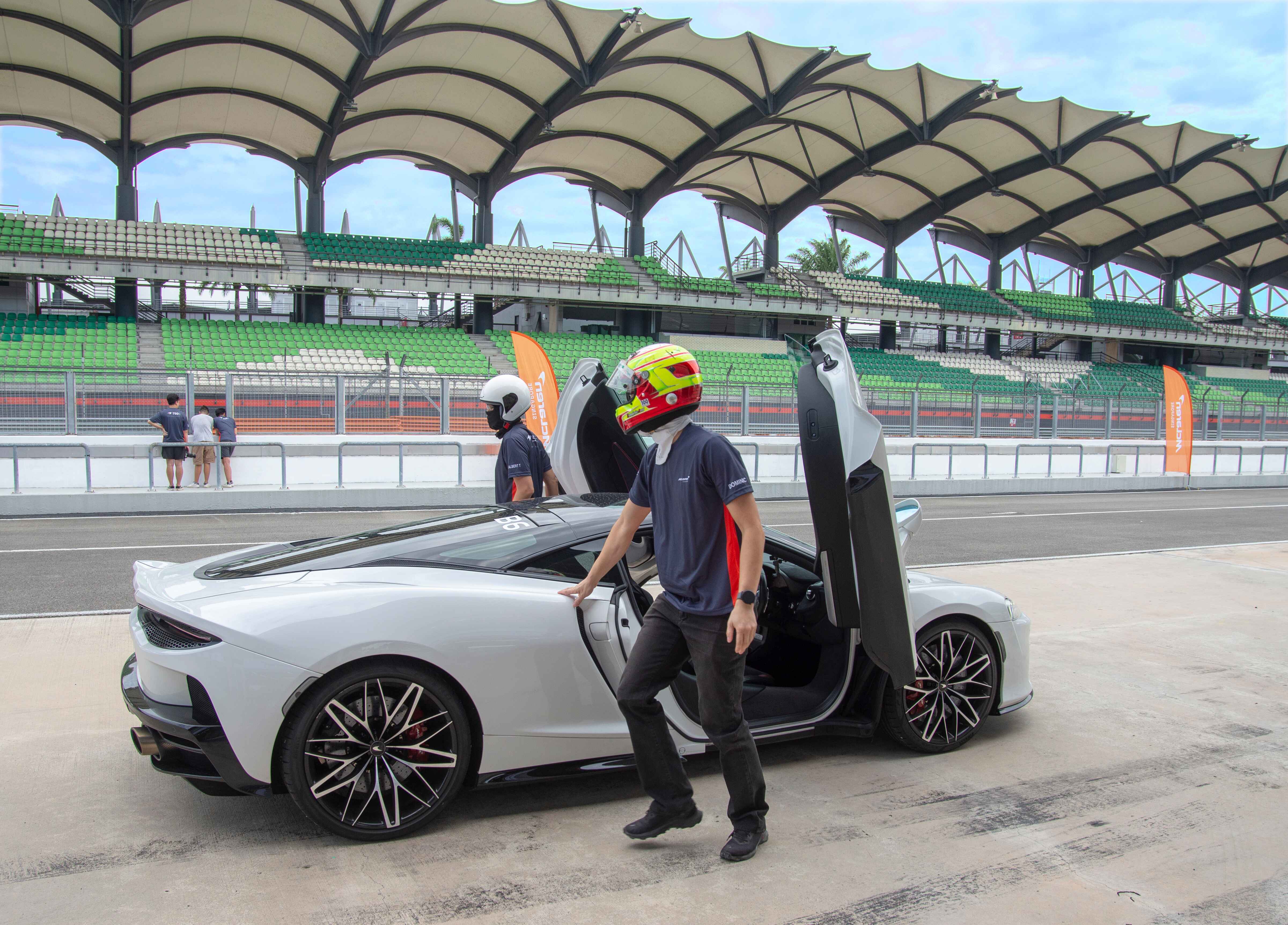One of the great things about being a writer is that you’re always exposed to new and exciting people, things, places, and events. So, when specialist luxury supercar manufacturer McLaren invited a group of automotive journalists to Sepang Raceway in Malaysia to test drive a few of their cars on an actual racetrack, I knew had to attend.

In my youth, I did a little stock car racing in California, but that didn’t prepare me in any way for the boost of adrenalin I received on the outskirts of Malaysia’s capital. It was an early morning flight up to KL, and after a large breakfast at the McLaren race pavilion, the writers were broken up into groups with three driving instructors. There were three McLarens to test on the track: The Artura, GT, and the race enabled 750S.
Race instructors were on hand to drive us one lap around the track showing us the ins and outs for the turns, which were marked by cones. They also demonstrated the proper turning, braking, acceleration techniques, and how to handle the paddle shifter on the steering wheel. While very similar, each car had its own way of handling and peculiar features that helped differentiate it between the models. The 750S was by far the fastest and closest to a real race car; and incidentally was my favorite, by far. After our first lap we were to switch positions with the instructor.
(Related: McLaren Artura - A ride to remember)

With the hot Malaysian sun beating down, we put on our race helmets and were strapped into the vehicle. We were a “go” for the first test lap. The car’s cockpit was small, but surprisingly roomy for a race car. Also, unlike my racing days, the inside of the car had air-conditioning, which made it quite comfortable. To make adjustments on the car’s ride, a new column-mounted instrument display flanked by rocker switches controls the Dynamic settings. It allows suspension and powertrain modes to be changed with hands on the steering wheel, while McLaren’s Control Launcher (MCL) feature allows the driver to store favorite combinations of aero, handling, powertrain, and transmission settings. A stunning center-exit exhaust inspired by McLaren P1 delivers a new, powerful, and unmistakable roar at the rear of the car.
As we pulled out of the pit, my instructor floored the McLaren. The G forces were incredible. I felt like an egg in a sling being smashed about or sent into warp drive. First, it was the sheer acceleration that slapped me back into the seat, but what was next was worse: The turns. My body was flung hard from side to side. The whole thing made me giddy. For a moment, I even thought I was going to lose my breakfast. I was holding on for dear life. I thought, “What the hell am I doing here?” If I could, I would have stopped the car and gotten out, but there was no time for that.
Speed is the name of the game and the new McLaren 750S is the lightest and most powerful series-production car the company produces. It blasts off from zero to 100 kph in an incredible 2.7 seconds. That’s even faster than some of today’s quickest EVs. At the heart of the 750S is a 4-litre twin-turbocharged V8 engine that’s mid-mounted for perfect weight distribution. This roaring powerhouse generates a whopping 750PS (metric horsepower) and crushing 800Nm of torque.

In the straightaways, our car approached 240 kph as the raceway’s bleachers became nothing but a side blur. As we moved closer to the turn, my instructor slammed on the huge carbon ceramic discs brakes nearly throwing me through the windscreen. Then, as we came out of the turn, he pushed the accelerator to the floor shoving me back into the seat like sack of wet potatoes. With the G forces we encountered in the turn, I was convinced the car would flip right over… but thankfully didn’t. The McLaren clung to the sun drenched asphalt like a Gecko on glass. The wheels held the track like they were made of velcro.
What really got me was how anyone could drive at these speeds? As we neared the end of the lap, the instructor slowed the car down so that the engine had a chance to cool before we pulled into the pit stop. I crawled out of the car a bit shaken. Now, it was my turn to drive.
I know, there were those that called me “chicken” when I announced I didn’t want to drive. We were given three laps to do with each car. After I recovered from the first lap something hit me, and like a junkie, I was hooked. I found the speed addictive. Yes, terrifying, but addictive. I approached my McLaren instructor and asked if he’d drive. My reason? I knew that I would never be able drive anywhere near what my instructor drove like and I’d never be able to achieve the skill or speed he achieved. To be honest, the shifting paddles on the wheel seemed more than just a bit daunting. I can just imagine screwing up on the track. So I decided to let my instructor show me the ropes by driving and I’m glad I did. After all, why drive when you can be driven?
On the last lap, my driver was powering out of the hairpin turn that was right before our final pit stop. In what appeared like slow motion, the car started to spin. The instructor quickly reacted and instead of trying to correct our spin, he went with it. As a result, we did a perfect doughnut on the Sepang tarmac. It was frightening but glorious! He explained later that the hot asphalt made the tyres lose a bit of their Gecko-like grip.
My afternoon ended with three more laps each in McLaren’s Artura and GT cars. The McLaren 750S is the most expensive car coming in at around S$1,530,000, while the Artura and GT are priced at S$1,200,000 and S$1,065,000, respectively (without COE). So, if you ever have the need for speed in a luxury sports car, then you can’t do any better than a McLaren. If you get the chance, take one out for a spin. I’m sure, like me, you’ll be very happy you did.













 Back
Back
